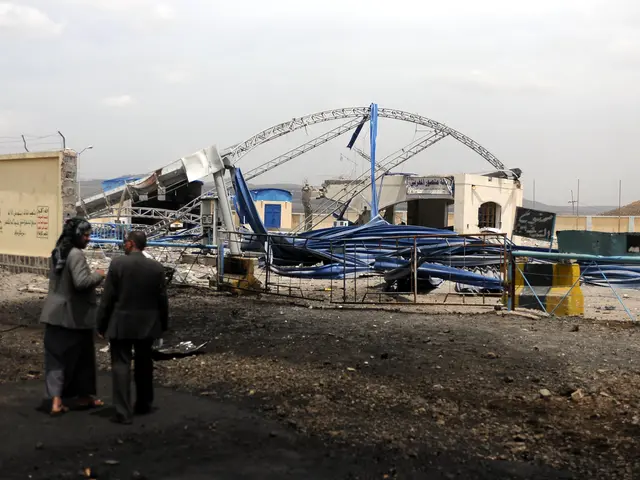A lingering military conflict is raging intensely in different areas of Yemen, adding to the complication of the task of an Arab coalition led by Saudi Arabia.
The Arab military coalition, allied with the Yemeni government, has been battling Iran-backed Houthis for the control of the country since 2015.
On Jan. 18, the Houthi rebels launched a ballistic missile against a military base of the newly-recruited Yemeni forces in the northern province of Marib, 170 km east of the capital Sanaa.
Yemeni medical sources confirmed to Xinhua that the Houthi attack that struck a mosque at a military camp of the newly-recruited forces in Marib left more than 111 soldiers killed and nearly 151 others injured.
The country's Defense Ministry said on Jan. 19 that the Houthi attack was "to avenge the killing of the Iranian commander Qassem Soleimani," who was killed in a drone strike carried out by the United States in Iraq on Jan. 3.
Yemeni military officials believe that the years of conflict is on the brink of entering a new phase that would be the toughest one since the war was erupted in 2014 when the Houthis captured Sanaa.
An official of the defence ministry's branch in the southern port city of Aden told Xinhua on condition of anonymity that "some Middle East countries are attempting to strengthen their foothold in Yemen as part of the region's spiking tension which add to the complication of the Saudi-led coalition's task."
"A number of new local Yemeni factions started to come out and began to defy the Saudi-led coalition in clear exploitation of the recent circumstances happening in the region," the source said.
"Through supporting those Yemeni factions, the regional powers are standing against the efforts exerted by Saudi Arabia and the United Arab Emirates (UAE) and always work on pushing the coalition to depart the country," he added.
Another security source close to the Southern Transitional Council (STC), a strong military ally of the Saudi-led coalition in southern Yemen, clarified that there are clear cooperation and coordination between some local Yemeni factions against the Saudi-led Arab coalition.
He said that "Yemen's Muslim Brotherhood-affiliated Islah party started secret cooperation with the Houthis to strike the local pro-coalition factions that are standing sincerely with Saudi Arabia in the war against the Houthis."
The source added that the political crisis between the Gulf countries and Qatar largely affected the conflict in Yemen as" some Yemeni military factions linked to Qatar stopped their fighting with Saudi-led coalition and shifted their alliance by turning to supporting the rebels to serve the agenda of their regional backers."
The Houthis launched a large military campaign and seized Sanaa in late 2014, forcing Yemen's internationally-recognized President Abd-Rabbu Mansour Hadi and his government to flee to the southern port city of Aden.
Subsequently, the pro-Houthi forces backed by armored vehicles attacked Aden and shelled Hadi's Republican Palace, forcing him to escape again to the neighboring Saudi Arabia.
The Arab coalition intervened in Yemen militarily and began pounding the Houthi-controlled Sanaa in March 2015.
The ongoing fighting between the two warring rivals with daily Saudi-led airstrikes plunged the impoverished Arab country into more chaos.
Three-quarters of the population, or more than 22 million people, urgently require some form of humanitarian assistance, including 8.4 million who struggle to find their next meal.
 简体中文
简体中文

